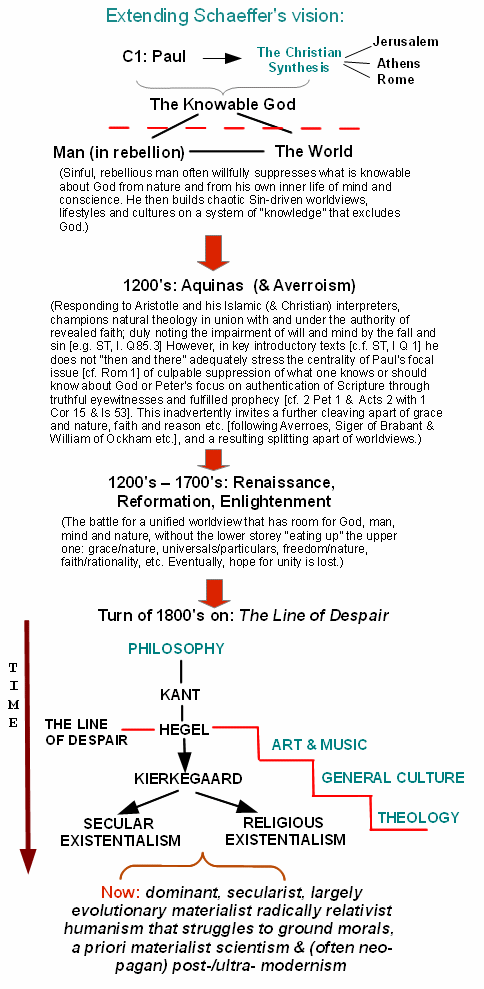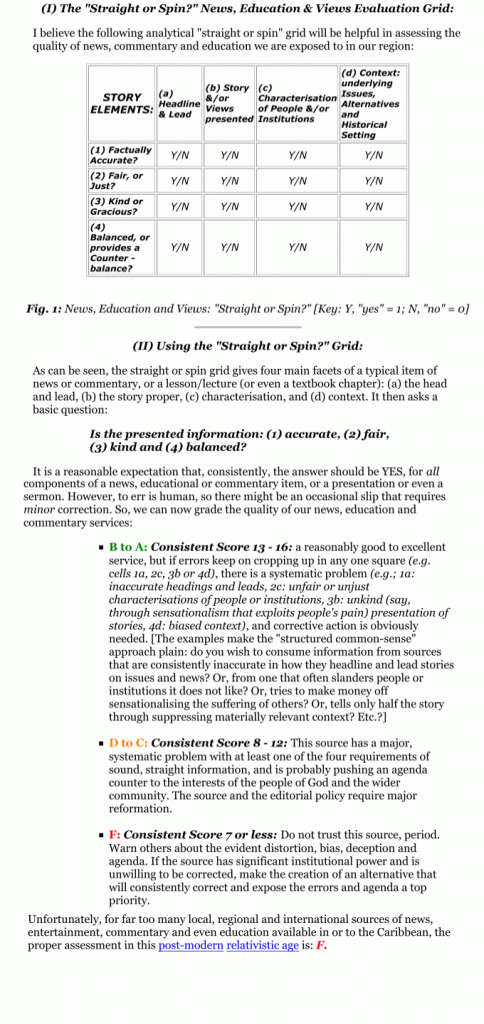Here (as updated):
Money clip:
The imperative of protecting religious freedom was not just a nod in the direction of piety. It reflects the framers’ belief that religion was indispensable to sustaining our free system of government . . . ”
Food for thought. END
F/N, U/D: Prepared text, found. I think he mostly read the speech, let us clip and discuss below.
PS: First, a different view on political spectra (than where one sat in the French legislature 200 years ago or thereabouts):

Next, Aquinas on law, as summarised:

Third, Schaeffer’s line of despair analysis, as adjusted and extended:

Let’s add on straight vs spin
